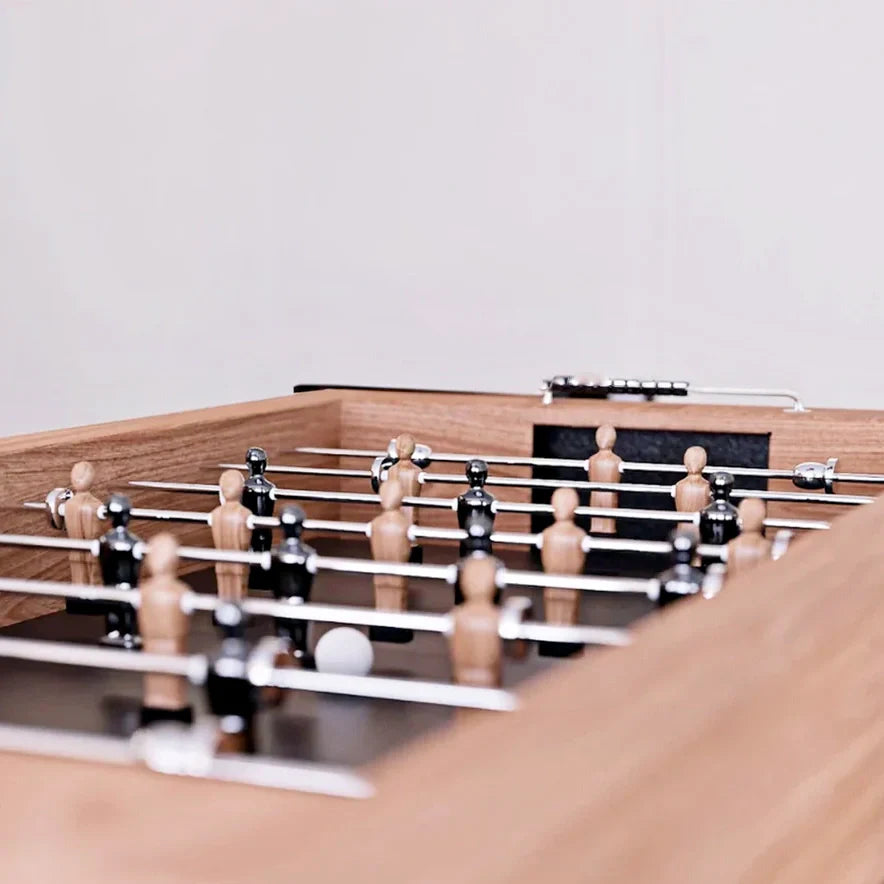Billiards, commonly known as pool, is a globally recognized game of skill and strategy often associated with bars, recreational spaces, and competitive tournaments. While the core rules of billiards don’t inherently involve gambling, its historical and cultural ties to wagering have sparked debates about its legal and social implications. Let’s explore the nuances of billiards and gambling, from legal definitions to modern-day practices.
Is Billiards Gambling?
No, billiards itself is not gambling. The game’s rules do not require betting or monetary stakes. However, gambling on billiards—placing wagers on match outcomes—is a separate activity that has persisted for centuries. For example, players might bet on their own games, spectators might wager on professional matches, or digital platforms like 8 Ball Pool allow in-game currency betting. These side bets exist outside the official rules and are subject to legal restrictions.
Legal Status of Gambling on Billiards
Gambling on billiards is illegal in all 50 U.S. states, even in casinos where other forms of gambling are permitted. Specific laws, such as Alabama’s prohibition of games like Kelly pool and scrub in billiard rooms, highlight the strict stance against mixing pool and wagering. Exceptions are rare: California, for instance, allows players to split table rental fees but bans any additional betting. Despite these laws, informal bets among friends in casual settings often go unenforced.
Skill vs. Chance in Billiards
Billiards is primarily a game of skill, requiring precision, strategy, and control over the cue ball. Unlike games of pure chance (e.g., slot machines), success in billiards hinges on a player’s ability to calculate angles, plan shots, and adapt to table conditions. However, minor elements of luck—such as unexpected ball collisions or table imperfections—can influence outcomes. This blend places billiards in a gray area between skill-based sports and gambling activities.
Historical Ties to Gambling
Billiards’ association with gambling dates to the 19th century, when poolrooms doubled as hubs for horse-race betting. Tables were introduced to entertain patrons between races, cementing the game’s link to wagering culture. By the early 20th century, anti-gambling laws led to raids on pool halls, stigmatizing the sport. Today, digital platforms like 8 Ball Pool have revived betting traditions, integrating casino-like features (e.g., bonus wheels) to monetize gameplay.
FAQ
1. Is betting on pool matches illegal?
Yes, betting on billiards is illegal in all U.S. states, even in casinos. Informal bets among friends are rarely prosecuted but remain unlawful.
2. Can you play billiards in casinos?
Yes, many casinos have billiard tables, but gambling on games is strictly prohibited.
3. Is billiards more about skill or luck?
Billiards is primarily skill-based, though minor luck elements (e.g., ball rolls) can affect individual shots.
While billiards remains a legitimate sport and recreational activity, its historical ties to gambling persist in informal betting and digital platforms. Understanding the legal boundaries and skill-driven nature of the game helps separate its core identity from the controversial practice of wagering.





1 comment
Betting does not always constitute gambling.
Q: Is betting on oneself in Colorado while playing a game of skill (GoS) considered
Gambling?
A: No. Read below.
Q: What constitutes a GoS?
A: Any game that requires physical and/or mental interactions from its players. Darts, pool,
foosball, checkers, golf are all GoS. Craps, Yahtzee, poker are NOT GoS because players
have no control (rolling dice, shuffling cards) over the events they’re betting on.
Q: What is the statutory (legal) definition of gambling in Colorado?
A: C.R.S. § 18-10-102(2).
(2) ”Gambling“ means risking any money, credit, deposit, or other thing of value for gain
contingent in whole or in part upon lot, chance, the operation of a gambling device, or the
happening or outcome of an event, including a sporting event, over which the person taking
a risk has no control, but does not include: (a) Bona fide contests of skill, speed, strength,
or endurance in which awards are made only to entrants or the owners of entries;
Colorado’s gambling definition requires that three elements be present to constitute gambling.
1) 2) 3) Risk (bet) money or anything of value (AOV).
Gain (award/win) money or AOV.
No control over the outcome of event(s) being bet on.
Q: Does betting automatically mean gambling is occuring in Colorado?
A: No. In order for something to be defined as gambling in Colorado it must carry all three
elements stated above. Remove just one and the ‘betting act’ cannot be legally defined as
gambling. Colorado’s gambling definition requires ‘no control’ on events being bet on. GoS
require controllable physical and/or mental interactions. Thus, GoS self-betting is legal in
Colorado because GoS (having controllable events) exclude themselves from the State’s
gambling definition. This exclusion is expressly written in the definition’s first clause: but does
not include: (a) Bona fide contests of skill, speed, strength, or endurance in which awards are
made only to entrants or the owners of entries
Note that Colorado’s gambling definition very definitively separates gambling from
not-gambling with the phrase ‘no control’ and not the word ‘chance’. No control means bettors
have zero control (mental or physical) over the outcome (in whole or in part) on the event
they’re betting on. The phenomenon of chance is inherent in ALL GoS but the degree of
control to which a player has on game outcomes while partaking in said game is not zero.
Thus the dividing line between a GoS and non-GoS is control and zero control respectively.
Following is a case confirming that GoS self-betting is perfectly legal in Colorado.
Berckefeldt v. Hammer ruled that self-betting while partaking in a game of skill does not
constitute gambling by Colorado statute §18-10-102(2).
Golf match not ”gambling“ – A golf match, participated in and bet on by four golfers, in
which each of the four, by his playing, had control over the outcome did not constitute
”gambling“ as defined in § 18-10-102 (2). Berckefeldt v. Hammer, 44 Colo. App. 320,
616 P.2d 183 (1980).
It should be noted that there are golf tournaments all over Colorado which require an entry fee,
which to the player is simply their ‘bet’ that their golf skill is superior to all other tournament
players. But these entry fee (bets) do not constitute gambling as they are partaking in a GoS.
Q: Is skee-ball a GoS?
A: Yes.
Q: Is betting on skee-ball gambling?
A1: Not when the betting players engage in a contest pitting their skee-ball skills against each
other and awards are made only to entrants in the contest.
A2: But when skee-ball is set up to award players with tickets exchangeable for prizes it
constitutes gambling. This is because the betting action between the player and the owner of
the machine is not excluded by Colorado’s gambling exclusion clause. The exclusion clause
requires two elements be present to exclude an act from gambling.
1) a contest – players pitting their skills against each other in a GoS (controllable events).
2) awards made only to contest entrants.
The player fails to fulfill the first element (no contest – he’s the only player) while the owner of
the machine fails to fulfill both required elements in the gambling exclusion clause; 1) they’re
not an entrant in the contest, and 2) they received awards (player’s money) without being an
entrant in a contest. The skee-ball owner’s action of accepting the skee-ball player’s bet is
equal to a basketball player betting on himself to score x-amount of points in a basketball
game whereby the owner of his team accepts his bet.
Q: Would GoS self-betting at a bar, restaurant or poolhall licensed to sell alcohol be a
violation of Colorado’s liquor law? C.R.S. § 44-3-901(6)(n)(i)
(6) It is unlawful for any person licensed to sell at retail pursuant to this article 3 or
article 4 of this title 44: (n)(I) To authorize or permit any gambling, or the use of any
gambling machine or device, except as provided by the “Bingo and Raffles Law”, part 6
of article 21 of title 24.
A: No. C.R.S. § 44-3-901(6)(n)(i) says these liquor licensees are not permitted to authorize or
permit any gambling. Since GoS self-betting is not considered gambling in Colorado, said
licensees can permit (or prohibit if they so choose) GoS self-betting at their businesses and not
be in violation of Colorado’s liquor license gambling law.
Q: If GoS self-betting does not statutorily constitute gambling in Colorado then what’s
the correct definition of this type of betting?
A: Tournament. GoS tournaments are excluded from Colorado’s Gambling Statute by its
exclusion clause (a). So running a public (or private) GoS tournament requiring an entry fee
(aka – bet) is perfectly legal.
It should be noted that Colorado has no tournament statutes. Therefore, those holding/hosting
a tournament can legally take (rake) a percentage of the players’ entry fees and not be in
violation of any Colorado tournament statutes as none exist. You can’t break a law that does